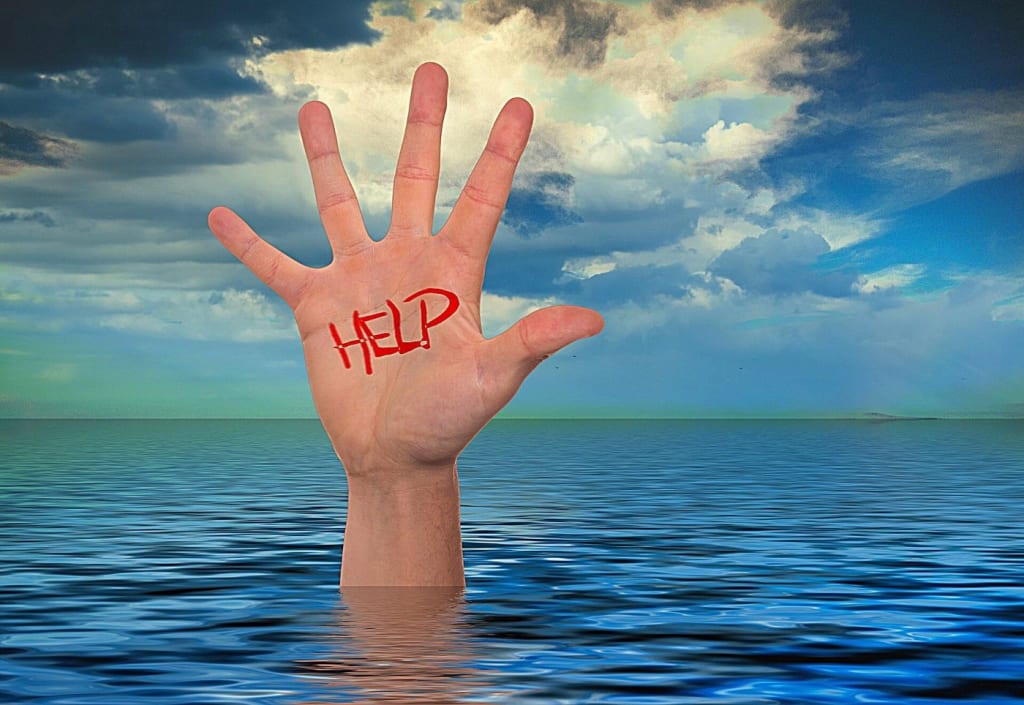Why You Need to Be Careful About Helping People Who Can’t Be Helped
Some people are just too far gone and will drag you down

“When people are really lost, sometimes they’re so lost that they can’t be found.” — Jordan Peterson.
Have you ever desperately tried to help someone but it’s ended up being a total failure? Yes, me too. Let’s take a look at what that’s all about.
I used to try to save people
In 2004, I went through a health crisis. After that, I was on a journey of self-improvement. This spilt over into also trying to help other people too, which was usually a mistake.
For example, I once had a girlfriend who had paranoid schizophrenia. I didn’t realise how bad she was when we first started dating. But by the time I did realise, I was in too deep.
I wasn’t equipped to help her. I’m not a doctor or even a psychotherapist. I didn’t know what I was doing, but my desire to help her overshadowed that. I tried so hard to help her out, but it almost destroyed me.
Another example was a male friend of mine. He had no confirmed mental illness diagnosis, but his life was a complete disaster. He seemed to have a total inability to deal with any of the normal aspects of adult life. I took up the slack by doing things for him that he seemed to be unable to do himself.
The problem was, this didn’t cause him to get better at being a functioning adult. Over time, it just caused me to become resentful that I was doing so much for him.
Be careful, says Jordan Peterson
“If someone who is sinking has their hands around your neck and is pulling you down, you are not obligated to drown with them.”
While I don’t agree with everything Jordan Peterson says, he’s 100% spot on about this. Here is the video clip that I took this quote from:
“Heroes” who risk their own lives
In the above clip, Jordan talks about how lifeguards are trained to approach people with their feet out. This puts them in a position where they are less likely to drown themselves in the process.
This reminds me of when we see news stories about “heroes” who risked their own lives to save other people. We tend to view this behaviour in positive terms. It’s not only the fact that they saved someone, but that they put themselves in danger to do so.
But think how easily it can all go wrong. Yes, sometimes someone will run into a burning building and run back out with a child or a dog. But other times they don’t come out, and they die too. In such a scenario, nothing good has come from their attempt at heroism.
Should you NEVER help other people?
No, you just need to minimise the chances of ruining yourself in the process. You need to be confident in your own ability. Only jump into water to save someone if you’re a strong swimmer and you’re strong enough to pull them to safety.
Of course, in emergencies, it’s difficult to make the right decision quickly. But this is why it’s important to be prepared. Stay physically fit, learn first aid, take self-defence classes. Don’t be the useless unprepared idiot who only makes things worse.
When it comes to non-emergency situations, we have more time to assess the situation.
For example, if you know someone who is suffering from mental health problems. Are you equipped to deal with it yourself? Or will you get yourself in too deep and get pulled under?
It’s fine to help someone if you can pull them up while keeping yourself afloat. But also make sure you’re not wasting your time and effort. If every time you try to pull someone out of the water they fight with you and then jump back in, is it worth it?
About the Creator
Edward John
Interested in health, self-improvement, the outdoors, and psychology. Mildly autistic, I sometimes get obsessed with strange things nobody else is interested in. Sometimes I write silly stories. [email protected]






Comments
There are no comments for this story
Be the first to respond and start the conversation.